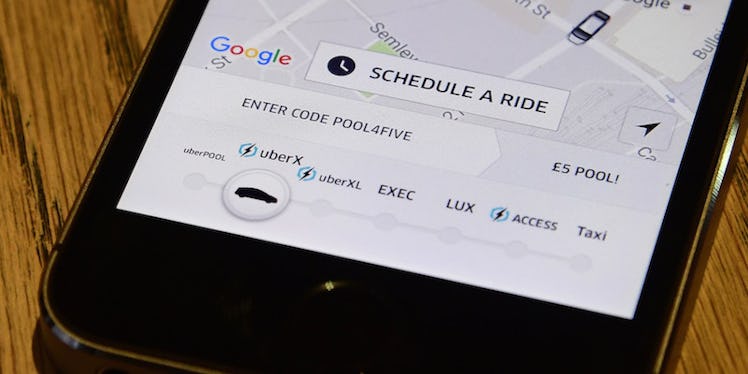
Uber Rides Cost More For Women Than Men, According To This Infuriating Study
A fun new study tells us women are charged more for Uber and Lyft rides.
So, on top of systematically getting paid less, women have to pay more to get around.
The study was conducted in Seattle and Boston by eight research assistants who were equally split in gender and race (white and black represented).
Over the course of 1,500 rides, the researchers found both Uber and Lyft have sexist and racist tendencies.
Part of the study included the researchers using either African American or white-sounding (in their terminology) names.
They found Uber users with African American sounding names were more likely to be canceled on by drivers. Drivers canceled on those users more than twice as often as they did on users with white sounding names.
This follows research and anecdotal belief that it is harder for black people to catch traditional cabs. So that's fabulous.
Lyft didn't have that same problem. The disproportionate cancelation rate for black users did not show up in the research when it came to Lyft. But that may have had something to do with the functionality of Lyft, which shows user profiles before drivers accept trips.
On Uber, drivers are only shown profiles after they accept the ride, which may account for the more frequent cancelations once they see who they're picking up.
Over on the sexism side of things, researchers found women were being taken on longer trips -- some that even included going around in circles through the same intersections -- from "'chatty' drivers who drove extremely long routes."
Because trips for women were made longer, they were charged more for them.
Basically, what's happening is this: Drivers will chat with women, and thus either consciously or subconsciously make mistakes during the trips. This will cause them to be more expensive.
As a white woman, I can't speak to the experiences of black users. But I do know I've had plenty of rides where the driver missed a turn because we were chatting.
I also know that around 40 percent of the time, I'm keeping up a conversation with a driver – who more likely than not is a man – so that he thinks I'm nice enough to not turn around and attack me because that's a thing that happens to women.
This is not to mention the fact that I've been conditioned to have manners because that's what's expected of women.
(And yes, of course, I've had truly wonderful conversations with Uber drivers. I recognize my paranoia.)
In a statement to Cosmopolitan, Uber's head of North American operations, Rachel Holt, said,
Discrimination has no place in society, and no place on Uber. We believe Uber is helping reduce transportation inequities across the board, but studies like this one are helpful in thinking about how we can do even more.
In conclusion, all those discriminations you thought might be real are now finally backed up by statistics. Woohoo!
Citations: Cosmopolitan, Washington Post, Mic